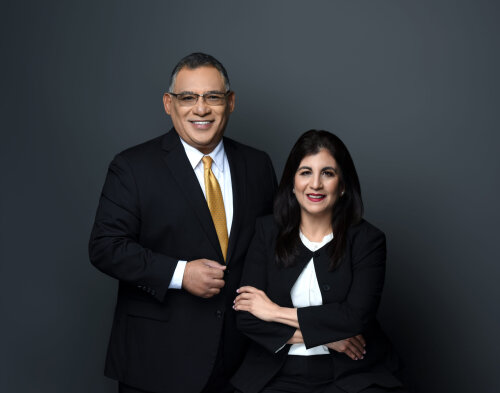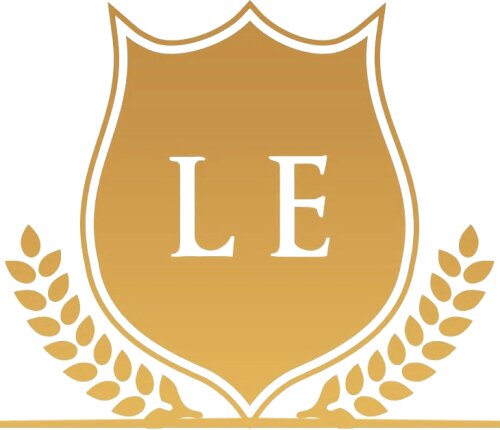Best Premises Liability Lawyers in United States
Share your needs with us, get contacted by law firms.
Free. Takes 2 min.
Or refine your search by selecting a city:
List of the best lawyers in United States
About Premises Liability Law in United States
Premises Liability is a legal concept that holds property owners and occupiers responsible for injuries that occur on their property due to unsafe or defective conditions. This law applies to both residential and commercial property and aims to ensure that spaces are reasonably safe. The liability can arise from accidents such as slip and falls, inadequate maintenance of the property, defective conditions, inadequate security, and more. In the United States, this area of law is largely governed by state statutes and case law, which can vary significantly from one jurisdiction to another.
Why You May Need a Lawyer
There are several common situations where you may require legal assistance regarding Premises Liability:
- If you've been injured on someone else's property and are facing medical bills or lost wages.
- If you are a property owner being sued for an injury that occurred on your property.
- If you are having disputes with insurance companies regarding the coverage of an accident.
- If you need assistance understanding your rights and responsibilities under local premises liability laws.
- If you are attempting to settle an injury claim and require professional negotiation skills.
Local Laws Overview
While premises liability laws vary by state, there are common elements that many jurisdictions consider:
- Duty of Care: Property owners owe a duty to ensure their premises are reasonably safe. This duty can vary depending on the status of the visitor (invitee, licensee, or trespasser).
- Reasonable Care: The standard of reasonable care involves regular maintenance and prompt repair of known hazards. Failure to meet this standard can result in liability.
- Comparative Negligence: Some states operate under comparative negligence rules, which may reduce the recoverable compensation based on the injured party’s degree of fault in the incident.
Frequently Asked Questions
What is premises liability?
Premises liability refers to the legal responsibility property owners have for accidents and injuries that occur on their property due to unsafe conditions.
What should I do if I am injured on someone else's property?
Seek medical attention immediately. Document the scene with photos if possible, notify the property owner or manager, and consult with a premises liability attorney.
What kind of compensation can I receive in a premises liability case?
Potential compensation may include medical expenses, lost wages, pain and suffering, and other damages related to the injury.
What is the statute of limitations for filing a premises liability claim?
The statute of limitations varies by state but typically ranges from one to three years from the date of the accident.
Do I need a lawyer to handle a premises liability claim?
While not legally required, hiring a lawyer can help ensure your rights are protected and improve the likelihood of obtaining fair compensation.
Are property owners always liable if someone is injured on their property?
No, liability depends on the property owner's negligence in maintaining safe conditions and the status of the injured party as a visitor.
What if I was partially at fault for my injury?
In states with comparative negligence laws, you may still recover damages, but they may be reduced by your percentage of fault.
Can trespassers sue for injuries received on private property?
In general, property owners owe the least duty of care to trespassers, but there are exceptions, such as foreseeable risk to children.
Does premises liability apply to renters and not just property owners?
Yes, tenants can also be held liable for injuries if they control and maintain a portion of the property where the injury occurred.
What are common defenses against premises liability claims?
Common defenses include lack of negligence, the injured party’s fault, assumption of risk, and unforeseeable circumstances.
Additional Resources
If you need further assistance or information, consider reaching out to the following resources:
- The American Bar Association (ABA)
- Local State Bar Associations
- The U.S. Consumer Product Safety Commission
- Local legal aid societies
Next Steps
If you believe you need legal assistance in a premises liability case, consider taking the following steps:
- Gather all documentation related to the incident, including medical reports, photographs, and witness statements.
- Research and contact a qualified premises liability lawyer with experience in your jurisdiction.
- Schedule a consultation to discuss your case and understand the potential outcomes and legal strategies available to you.
- Stay informed about the progression of your case and maintain open communication with your legal counsel.
Lawzana helps you find the best lawyers and law firms in United States through a curated and pre-screened list of qualified legal professionals. Our platform offers rankings and detailed profiles of attorneys and law firms, allowing you to compare based on practice areas, including Premises Liability, experience, and client feedback.
Each profile includes a description of the firm's areas of practice, client reviews, team members and partners, year of establishment, spoken languages, office locations, contact information, social media presence, and any published articles or resources. Most firms on our platform speak English and are experienced in both local and international legal matters.
Get a quote from top-rated law firms in United States — quickly, securely, and without unnecessary hassle.
Disclaimer:
The information provided on this page is for general informational purposes only and does not constitute legal advice. While we strive to ensure the accuracy and relevance of the content, legal information may change over time, and interpretations of the law can vary. You should always consult with a qualified legal professional for advice specific to your situation.
We disclaim all liability for actions taken or not taken based on the content of this page. If you believe any information is incorrect or outdated, please contact us, and we will review and update it where appropriate.
Browse premises liability law firms by state in United States
Refine your search by selecting a state.














